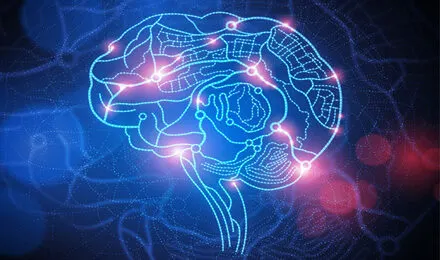NEUROLOGY

Neurology is a branch of medicine dealing with disorders of the nervous system. Neurology deals with the diagnosis and treatment of all categories of conditions and disease involving the central and peripheral nervous system (and its subdivisions, the autonomic nervous system and the somatic nervous system); including their coverings, blood vessels, and all effector tissue, such as muscle.[1] Neurological practice relies heavily on the field of neuroscience, which is the scientific study of the nervous system
Some of the most common disorders treated in neurology include:
Stroke: A neurological illness and disability caused that impact the brain when blood flow to the brain is blocked or there is sudden bleeding in the brain.
The five types of stroke are
- Ischemic stroke,
- Haemorrhagic stroke,
- Transient ischemic attack (also called TIA or mini-stroke),
- Cryptogenic stroke,
- Brainstem stroke.
Migraine: A common neurological disorder causing headache, accompanied by nausea and sensitivity to light and sound
Dementia: A chronic and progressive syndrome that includes affect cognitive abilities. The most common type of Dementia includes, Alzheimer’s disease and vascular dementia
Headache: A common neurological disorder that can be treated at home with over-the-counter pain relievers or lifestyle changes
Epilepsy: A common neurological disorder that causes seizures, which are episodes of abnormal electrical activity in the brain.
Some symptoms include Staring, jerking movements of the arms and legs, stiffening of the body, Loss of consciousness, breathing problems or breathing stops, Loss of bowel or bladder control, falling suddenly for no apparent reason, especially when associated with loss of consciousness.
Cerebral palsy: A common neurological disorder that affect the brain and cause issues with movement, balance, and posture. symptoms include poor coordination, stiff muscles, weak muscles, tremors, and problems with sensation, vision, hearing, and speech.
Encephalitis: A common neurological disorder resulting in the brain to swell due to inflammation. With symptoms like Headache, fever, confusion, stiff neck, vomiting, lethargy, sensitivity to light, seizures, hallucinations, trouble speaking, memory problems, and hearing problems
Parkinson’s disease: A degenerative neurological disorder that requires a multidisciplinary approach to manage a progressive brain disorder that causes movement problems, mental health issues, and other health concerns.
Symptoms include shaking, stiffness, difficulty with balance and coordination, and slowness of movement. As the disease progresses, people may have difficulty walking and talking
Multiple sclerosis: A degenerative neurological disorder
Multiple sclerosis (MS) is a chronic autoimmune disease that affects the central nervous system (CNS). It damages the myelin sheath, which protects nerve cells in the brain and spinal cord. This damage can slow or block messages between the brain and body, leading to a range of symptoms:
- Vision problems, such as blurred or double vision, blind spots, or red-green color distortion
- Muscle weakness
- Difficulty with coordination and balance
- Numbness, tingling, or “pins and needles”
- Thinking and memory problems
- Bladder and bowel dysfunction, such as incontinence, diarrhea, or constipation
- Fatigue
- Depression and anxiety
Amyotrophic lateral sclerosis (ALS): Amyotrophic lateral sclerosis is a progressive neurological degenerative disease that affects motor neurons in the brain, spinal cord, and brain stem. Causing nerve cells to die, resulting in muscle weakness, twitching, and even paralysis. Other symptoms include difficulty breathing and swallowing, speech problems, and voice changes.
Huntington chorea: A degenerative neurological disorder that result in involuntary movements, cognitive decline, and behavioural changes
Other neurological disorders include:
- Bell’s palsy
- Brain tumours
- Guillain-Barré syndrome
- Muscular dystrophy
- Hydrocephalus
- Lumbar disk disease (herniated disk)
- Meningitis

